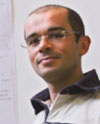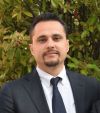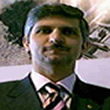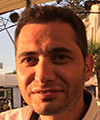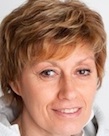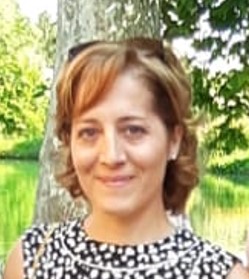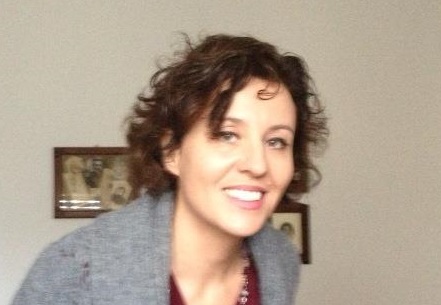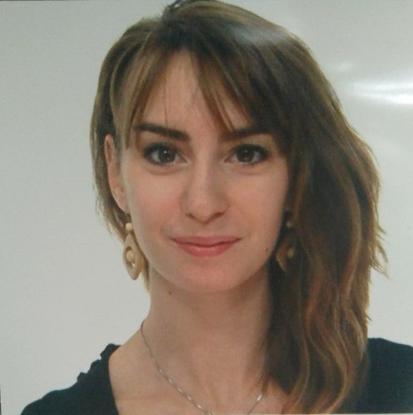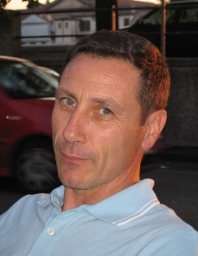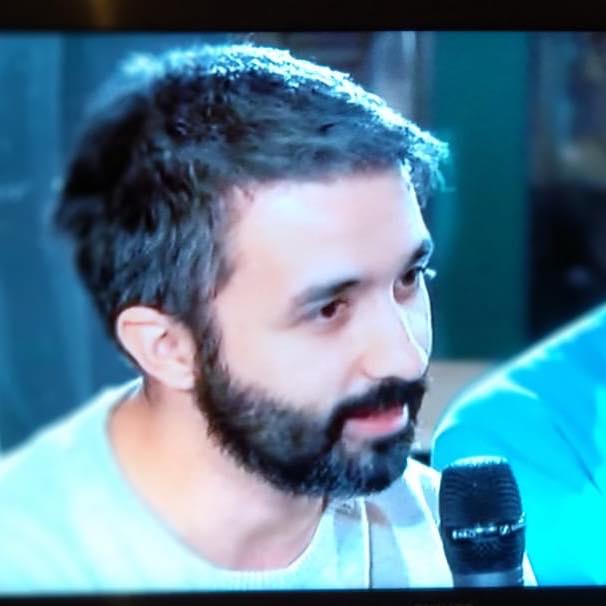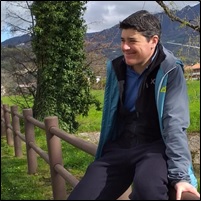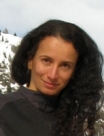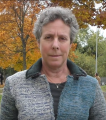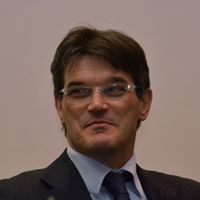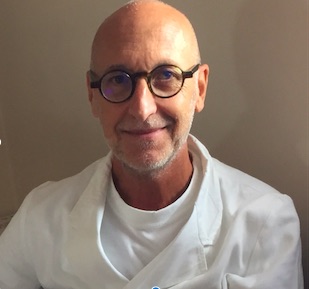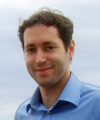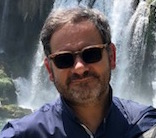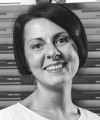Studying at the University of Verona
Here you can find information on the organisational aspects of the Programme, lecture timetables, learning activities and useful contact details for your time at the University, from enrolment to graduation.
Academic calendar
The academic calendar shows the deadlines and scheduled events that are relevant to students, teaching and technical-administrative staff of the University. Public holidays and University closures are also indicated. The academic year normally begins on 1 October each year and ends on 30 September of the following year.
Course calendar
The Academic Calendar sets out the degree programme lecture and exam timetables, as well as the relevant university closure dates..
| Period | From | To |
|---|---|---|
| 1° semestre SM | Sep 25, 2023 | Jan 12, 2024 |
| 2° semestre SM | Feb 26, 2024 | May 20, 2024 |
| Session | From | To |
|---|---|---|
| Appelli invernali SM | Jan 22, 2024 | Feb 23, 2024 |
| Appelli estivi SM | May 27, 2024 | Jul 2, 2024 |
| Appelli autunnali SM | Aug 28, 2024 | Sep 23, 2024 |
| Appelli sessione straordinaria SM | Jan 22, 2025 | Feb 24, 2025 |
| Session | From | To |
|---|---|---|
| Appelli estivi SM | Jul 4, 2024 | Jul 26, 2024 |
| Appelli autunnali SM | Oct 21, 2024 | Nov 18, 2024 |
| Appelli Sessione straordinaria SM | Mar 17, 2025 | Apr 16, 2025 |
| Period | From | To |
|---|---|---|
| Festa di Ognissanti | Nov 1, 2023 | Nov 1, 2023 |
| Festa dell'Immacolata | Dec 8, 2023 | Dec 8, 2023 |
| Vacanze di Natale | Dec 24, 2023 | Jan 1, 2024 |
| Vacanze di Pasqua | Mar 29, 2024 | Apr 1, 2024 |
| Festa della Liberazione | Apr 25, 2024 | Apr 25, 2024 |
| Festa dei lavoratori | May 1, 2024 | May 1, 2024 |
| Festività del Santo Patrono: San Zeno | May 21, 2024 | May 21, 2024 |
| Festa della Repubblica | Jun 2, 2024 | Jun 2, 2024 |
| Vacanze estive | Aug 12, 2024 | Aug 17, 2024 |
| Description | Period | From | To |
|---|---|---|---|
| Tirocinio SM | annuale | Sep 26, 2023 | Sep 25, 2024 |
| Description | Period | From | To |
|---|---|---|---|
| Corsi certificazione linguistica: consultare il calendario CLA | Sep 26, 2024 | Sep 30, 2025 |
Exam calendar
Exam dates and rounds are managed by the relevant Exercise Science Teaching and Student Services Unit.
To view all the exam sessions available, please use the Exam dashboard on ESSE3.
If you forgot your login details or have problems logging in, please contact the relevant IT HelpDesk, or check the login details recovery web page.
Should you have any doubts or questions, please check the Enrollment FAQs
Academic staff
 elena.antelmi@univr.it
elena.antelmi@univr.it
 alice.avancini@univr.it
alice.avancini@univr.it
 paola.cesari@univr.it
paola.cesari@univr.it
 tomas.chiaramonte@univr.it
tomas.chiaramonte@univr.it
 paolo.dellaquila@univr.it
paolo.dellaquila@univr.it
 laura.fontecedro@univr.it
laura.fontecedro@univr.it
 giuseppe.gasparre@univr.it
giuseppe.gasparre@univr.it
 anna.pedrinolla@univr.it
anna.pedrinolla@univr.it
 nicola.rovetti@univr.it
nicola.rovetti@univr.it
Study Plan
The Study Plan includes all modules, teaching and learning activities that each student will need to undertake during their time at the University.
Please select your Study Plan based on your enrollment year.
1° Year
| Modules | Credits | TAF | SSD |
|---|
2° Year It will be activated in the A.Y. 2024/2025
| Modules | Credits | TAF | SSD |
|---|
| Modules | Credits | TAF | SSD |
|---|
| Modules | Credits | TAF | SSD |
|---|
| Modules | Credits | TAF | SSD |
|---|
1 module among the following (Physical activity in natural environment and e Psychology of the years of grouth 1st year; Sport for People with Disabilities and Rehabilitation and re-training 2nd year)Legend | Type of training activity (TTA)
TAF (Type of Educational Activity) All courses and activities are classified into different types of educational activities, indicated by a letter.
Type D and Type F activities
I Regolamenti dei corsi di laurea e di laurea magistrale di scienze motorie prevedono che gli studenti possano completare il proprio piano didattico, frequentando oltre agli insegnamenti obbligatori anche delle attività formative a scelta, per approfondire alcuni aspetti tematici o settori di interesse, in coerenza con il proprio percorso formativo.
Le attività formative a scelta di ambito D sono indicate all’interno del piano didattico del corso di studio prescelto, mentre le attività formative di ambito F sono individuate da una apposita commissione di docenti. Queste ultime attività possono essere conferenze, seminari, webinar, altro e vengono acquisite con una valutazione e non con un voto in trentesimi.
Link attivo alla pagina: Regole e Tabelle delle attività a scelta
COMPETENZE TRASVERSALI
| years | Modules | TAF | Teacher | |
|---|---|---|---|---|
| 1° | Biochemistry for sport | D |
Massimo Donadelli
(Coordinator)
|
|
| 1° | Methodology of sport activities measures | D |
Cantor Tarperi
(Coordinator)
|
|
| 1° 2° | Anthropometry | D |
Carlo Zancanaro
(Coordinator)
|
|
| years | Modules | TAF | Teacher | |
|---|---|---|---|---|
| 1° | Sports and drugs | D |
Giovanna Paolone
(Coordinator)
|
|
| 1° | Neurological diseases and movement disorders | D |
Elena Antelmi
(Coordinator)
|
|
| 1° | Research methodology applied to sport | D |
Anna Pedrinolla
(Coordinator)
|
|
| 1° | Statistics applied to movement sciences | D |
Maria Elisabetta Zanolin
(Coordinator)
|
|
| 2° | Forensic medicine and social security | D |
Aldo Eliano Polettini
(Coordinator)
|
|
| 2° | Neuromotor rehabilitation | D |
Nicola Smania
(Coordinator)
|
|
| 1° 2° | Physical bases of exercise prescription | D |
Silvia Pogliaghi
(Coordinator)
|
|
| 1° 2° | Neuropsychology in motor disorders | D |
Mirta Fiorio
(Coordinator)
|
|
| 1° 2° | Advanced nutrition for sports | D |
Silvia Pogliaghi
(Coordinator)
|
|
| 1° 2° | Sport physiology | D |
Silvia Pogliaghi
(Coordinator)
|
|
| 1° 2° | Theory and pedagogy of nordic walking | D |
Barbara Pellegrini
(Coordinator)
|
|
Biochemistry for sport (2023/2024)
Teaching code
4S000725
Teacher
Coordinator
Credits
3
Also offered in courses:
- Biochemistry for sport of the course Master's degree in Sport Science and Physical Performance
Language
Italian
Scientific Disciplinary Sector (SSD)
BIO/10 - BIOCHEMISTRY
Period
1° semestre SM dal Sep 25, 2023 al Jan 12, 2024.
Courses Single
Authorized with reserve
Learning objectives
The course will consider the knowledge of the biochemical processes implicated in muscle cell functioning in a vision that integrates the entire organism. The student will learn to correlate the thermodynamic and kinetic features of the biochemical reactions belonging to the metabolism, including their enzymatic regulation, with the physiological responses to exercise in the absence or presence of various types of training.
Prerequisites and basic notions
To attend the course with profit, the student should have acquired knowledge of Chemistry and Biochemistry addressed during the three-year course. However, some fundamentals are retaken by the teacher.
Program
Energetic macromolecules and kinetic structure of the biochemical pathways: principles of the metabolic control of enzymes involved in the production of energy during physical exercise; equilibrium reactions and non equilibrium reactions, flux generating reactions, direction of a metabolic pathway; enzymes catalyzing flux generating reactions, the lactate dehydrogenase as an example.
Metabolic activity of the skeletal muscle: aerobic metabolism, alactic and lactic metabolism during the physical exercise; phosphocreatine and lactate; Cori Cycle.
Metabolism of carbohydrates: the effects on exercise and training in skeletal muscle.
Metabolism of amino-acids and proteins: the effects on exercise and training in skeletal muscle.
Metabolism of lipids: the effects on exercise and training in skeletal muscle.
Focus on some key enzymes that regulate energy metabolism after a training session.
Metabolic alterations in pathological conditions.
Bibliography
Didactic methods
Frontal teaching as the main teaching method.
Students who are in isolation due to Covid positivity will be made available the slides and other educational materials from lessons they were unable to attend.
Learning assessment procedures
A 60-minute written exam that includes both multiple-choice tests and open questions in which to expand on and articulate the answer.
Evaluation criteria
The ability to organize knowledge and the ability to critically reason about the realized study will be evaluated. The score will be given in thirtieths.
Criteria for the composition of the final grade
The score is composed of multiple answers and open answers, which on average carry more weightage.
Exam language
Italiano
Career prospects
Module/Programme news
News for students
There you will find information, resources and services useful during your time at the University (Student’s exam record, your study plan on ESSE3, Distance Learning courses, university email account, office forms, administrative procedures, etc.). You can log into MyUnivr with your GIA login details: only in this way will you be able to receive notification of all the notices from your teachers and your secretariat via email and soon also via the Univr app.
Graduation
List of theses and work experience proposals
Student mentoring
Gestione carriere
Orario lezioni
L’orario delle lezioni comprende
Lezioni Frontali in aula
Esercitazioni e laboratori
Questi ultimi sono organizzati per gruppi dai singoli docenti responsabili dei corsi.
L'orario è pubblicato nel portale studenti
Modalità di frequenza
Vige l'obbligo di frequenza al 70% come specificato nel Regolamento di ogni singolo corso di laurea e laurea magistrale:
Ulteriori informazioni:
L'accesso alle pagine Moodle dei singoli insegnamenti è vincolato alla compilazione del piano di studi.
App Univr Lezioni, FAQ e guida all'utilizzo sono disponibili al seguente link: orario-lezioni-e-modalita-di-frequenza
Comunicati: Avvisi per studenti
Internships
Internships are aimed at enabling students to gain direct knowledge of the world of work and to acquire specific professional skills.
Internships are carried out under the responsibility of an individual lecturer, and can be carried out in professional firms, public administration bodies and companies recognised by the University of Verona.
Any CFU credits gained by doing internships will be recognised and recorded by the University in accordance with the relevant University regulations in force (Regolamento d’Ateneo per il riconoscimento dei crediti maturati negli stage universitari).
For further information on internships, please go to: https://www.univr.it/it/i-nostri-servizi/stage-e-tirocini.
Linguistic training CLA
Certificazione medica di idoneità
Riferimenti normativi principali: DM 24 aprile 2013 art. 3, GU 169 del 20-07-2013; Decreto del Ministro della Salute dell’8 agosto 2014 e s.m.i.
Per frequentare le attività dei corsi di Laurea e Laurea magistrale di Scienze motorie è obbligatorio presentare la certificazione medica di idoneità fisica per attività sportiva non agonistica. La certificazione è necessaria per accedere alle attività pratiche-esercitative e al tirocinio.
à COME OTTENERE LA CERTIFICAZIONE
La certificazione - riportante l’indicazione che è stato eseguito l’ECG a riposo - può essere rilasciata da:
- centri o servizi di medicina dello sport delle ASL (ora ATS) e delle aziende ospedaliere
- istituti della Federazione Medico Sportiva Italiana
- centri pubblici o privati autorizzati:
- dai medici di medicina generale di libera scelta, relativamente ai propri assistiti;
- dal medico specialista in medicina dello sport.
L’ECG a riposo deve essere ripetuto annualmente.
E’ ammesso anche il certificato medico di idoneità alla pratica sportiva agonistica, per chi ne fosse già in possesso.
à SCADENZA PER LA PRESENTAZIONE
La certificazione medica deve essere prodotta al momento dell'immatricolazione e, comunque, entro l’inizio delle lezioni alla Segreteria Corsi di Studio Scienze motorie. Spetta agli studenti rinnovarla annualmente alla scadenza - per ogni anno di iscrizione in corso o fuori corso. La Segreteria effettuerà periodicamente dei controlli sulla consegna dei certificati.
NOTA: Studenti immatricolati a seguito di SUBENTRO/RIPESCAGGIO/TRASFERIMENTO IN INGRESSO: se non è possibile rispettare la scadenza di presentazione del certificato sopra indicata, avvisare la Segreteria Corsi di Studio Scienze, scrivendo all’indirizzo certmed.scienzemotorie@ateneo.univr.it
à MODALITA’ DI CONSEGNA
La certificazione va inviata alla Segreteria Corsi di Studio Scienze motorie dalla propria e-mail istituzionale nome.cognome@studenti.univr.it all’indirizzo certmed.scienzemotorie@ateneo.univr.it.
Student login and resources
Competenze linguistiche
DOPO LA LAUREA TRIENNALE
Per proseguire gli studi in uno dei corsi di Laurea Magistrale dell'ambito delle Scienze motorie è necessario possedere competenze linguistiche almeno di livello B1 informatizzato (o superiore) specificamente di lingua inglese, poichè i corsi di studio di livello superiore prevedono nel proprio piano didattico la presenza di insegnamenti o di moduli impartiti dai docenti direttamente in inglese.
Inoltre, tali competenze costituiscono requisito di accesso indispensabile per poter partecipare alla prova di ìngresso oppure per iscriversi ad una laurea magistrale.
La conoscenza di altre lingue diverse dall'Inglese NON può venire riconosciuta come "requisito" utile per l'accesso ai corsi di laurea magistrale. Tuttavia, la certificazione posseduta potrà essere valutata da un'apposita Commissione di docenti ed eventualmente riconosciuta in termini di crediti (CFU) a scelta dello studente, presentando domanda al momento dell'immatricolazione.
Si invita a leggere con attenzione i bandi di concorso annuali per l'ammissione ai corsi di laurea magistrali per maggiori informazioni - consultare nel sito del corso di studio anche la sezione "Iscriversi".
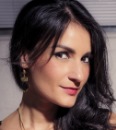
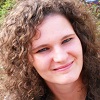

 +39 0458425112
+39 0458425112
